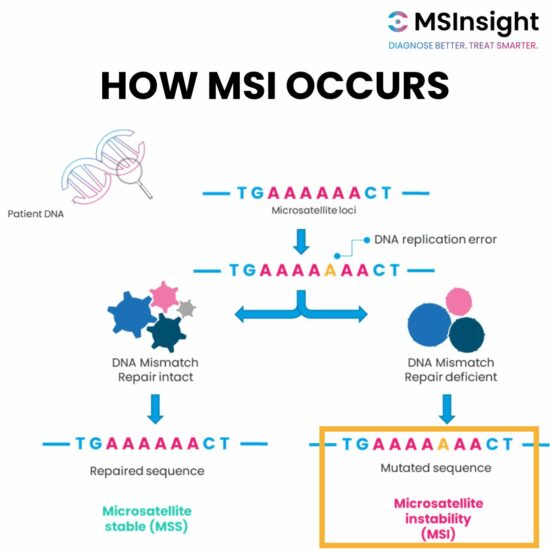Microsatellite Instability is a genomic signature that occurs when a cell’s DNA mismatch repair (MMR) system stops working properly.
📌 Microsatellites are short, repetitive sequences of DNA.
In healthy cells, the MMR system fixes mistakes that happen when DNA is copied.
When this repair system fails, these microsatellites become unstable — and we call this MSI.
Why does it matter?
- MSI is a biomarker for certain cancers, including colorectal, endometrial, gastric, and others.
- It can indicate Lynch syndrome, an inherited cancer predisposition.
- It predicts response to certain immunotherapies — patients with MSI-High tumors are more likely to benefit from PD-1/PD-L1 checkpoint inhibitors.
How is MSI detected?
- PCR (Polymerase Chain Reaction) — widely used, reimbursed in France, but can miss cases outside colorectal cancer.
- IHC (Immunohistochemistry) — detects loss of MMR proteins.
- NGS (Next-Generation Sequencing) — highly sensitive, detects MSI across hundreds of loci, and works in more tumor types.
💡 Why it’s important:
Detecting MSI can guide life-changing treatment decisions. Without testing, patients risk missed diagnoses and missed opportunities for targeted therapy.
At MSInsight, we develop tools like MSIcare to make MSI detection more accurate, scalable, and accessible — because every patient deserves the best chance at the right treatment.
#MSI #CancerDiagnostics #Genomics #PrecisionMedicine #Oncology #HealthTech #MSInsight


